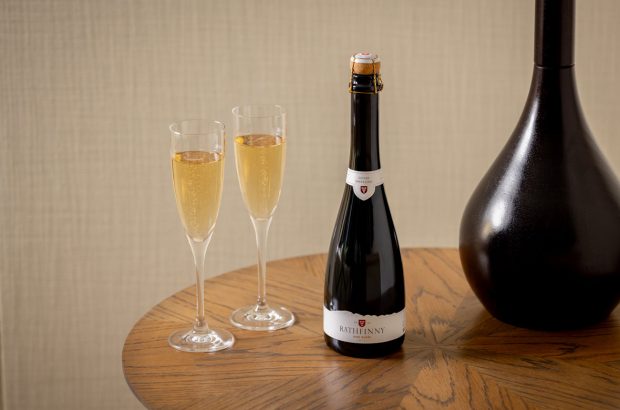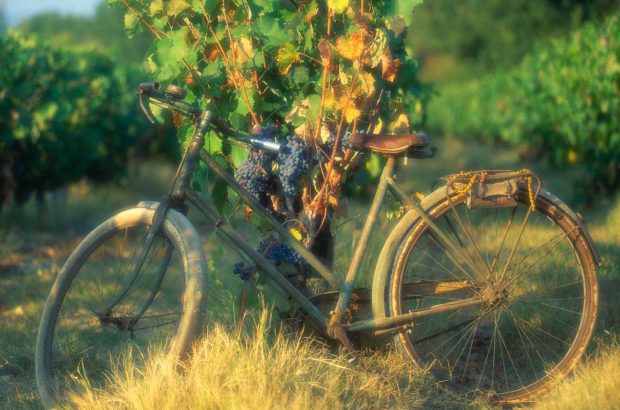Extreme weather made 2003 an exceptional year for those German Riesling producers who could best adapt to the challenging conditions. STEPHEN BROOK reports on a must-buy year.
Germany has been the heartland of Riesling for about five centuries. It’s not that other parts of the world – Austria, Alsace, Australia – can’t also produce excellent Rieslings, it’s just that Germany produces the widest range of styles: the lean, racy, refreshing wines from the Mosel, Saar and Ruwer, the firm, acidic German Riesling from the Rheingau, and richer, more expansive wines from Rheinhessen and the Pfalz. Moreover, all these regions produce sensational botrytis wines from Riesling when conditions permit, which they often do.
https://www.decanter.com/wine-news/mosel-saar-ruwer-shortens-name-to-mosel-88185/
2003 was a unique vintage in Germany. Its extremes of heat and drought were unmatched in living memory. Some compared it with 1959 but it was more extreme than that, and the only close comparison was 1540! Because of the unprecedented ripeness and sugar levels attained by the grapes, 2003 was hailed as a truly great year.
But it’s more complicated than that. Growers were faced with problems they had never had to deal with before regarding German Riesling. Conscientious producers like to pull leaves off the vines in summer to maximise exposure of the bunches to the pallid northern sunshine. In 2003 this would be a grave error, and growers who followed this procedure ended up with raisins. Heat also caused maturation of grape sugars to be blocked, especially once leaves had dropped off the vines. Young vines especially suffered terribly in the blistering heat. Low yields were essential to ensure the grapes ripened in these conditions: Johannes Leitz in the Rheingau reported removing 70% of his bunches.
The drought caused as much anxiety as the heat. Irrigation is usually forbidden in Germany but it was permitted in 2003. However, few German Riesling growers are equipped with irrigation and some resorted to hosing their vineyards or other makeshift methods. Some growers picked too early, ending up with must that was rich in sugar yet lacked phenolic ripeness. Others were unsure how to vinify such ultra-rich musts. Ernst Loosen in the Mosel says it was essential to adopt the most reductive methods. Even so, many Mosel wines have a strong phenolic leesy quality that gives them a strange soft earthiness. Nik Weis of Sankt Urbans-Hof insists: ‘The leesy character will vanish with some bottle age, but for the moment it’s true that some wines taste rather odd.’
Excessive alcohol was a severe problem in many regions. In the Rheingau drier German Riesling with over 14% (rather than the more usual 12.5%) were all too common. But the Mosel did not suffer in this way. ‘The grapes were certainly riper than usual,’ says Loosen, ‘but the band of ripeness was relatively narrow, and there was no overripeness as such.’
In the Mosel, and elsewhere, the problem was low acidity. ‘Curiously,’ remarks veteran winemaker Wilhelm Haag, ‘the wines taste higher in acidity than they actually are.’
Nonetheless, many wines lack the raciness and persistence that devotees of Mosel wines particularly look for. The Saar and Ruwer fared better and produced more consistent wines. Acidification was permitted, exceptionally, in 2003, but few winemakers went down this unfamiliar route, fearing its effects on their wines’ structure.
Although there are excellent German Riesling from all the classic regions, there are equally many disappointments. I cannot recall another vintage with such inconsistency from site to site, and from grower to grower. The top sites in this north European wine region tend to be those with maximum exposure to the sun, which is precisely what was not wanted in torrid 2003. The key to success lay in the water-retentive qualities of the soil. Thus steep, stony sites that often give the greatest wines in the Mosel and Rheingau suffered from drought, while less highly regarded vineyards on heavier soils fared better. Spreitzer and Kühn in the Rheingau have large holdings in the relatively low and flat Oestrich vineyards, and their wines turned out very well. But there are no hard and fast rules. Johannes Leitz, with substantial holdings in drought-prone Rüdesheim, mastered the problems confronting him and produced some superb wines.
https://www.decanter.com/features/meandearing-along-the-mosel-247040/
Botrytis was rare in the Mosel, which nonetheless produced small quantities of excellent sweet wines. But in the Rheingau there was a major outbreak in mid-September, and some estates harvested at record-breaking sugar levels. There are some truly astonishing sweet wines from 2003 – Dönnhoff and Schäfer-Frohlich in the Nahe, Robert Weil in the Rheingau, and Scharzhof in the Saar stood out – but there are also trockenbeerenauslesen that are syrupy and clumsy.
Careful shopping for German Riesling will be essential. Many Mosel Rieslings, for example, have delicious fruit which is initially entrancing, until five seconds later you realise the low acidity means the wines can often lack length and elegance. No lover of fine German wine should be without some of the unique 2003s, but the variations in style and quality are greater than the hype about the vintage would lead you to believe.
NEW FACES
Van Volxem
Brewery heir Roman Niewodniczanski bought this Saar property in 2000, hired expert winemakers, and snapped up excellent parcels to expand the estate. His focus has been on producing dry Rieslings which have remarkable depth and power.
Spreitzer
Brothers Andreas and Bernd Spreitzer took over this family property in Oestrich in the Rheingau in 1997. They age their wines on the fine lees to give a silky texture, and almost all are made in a light, racy style of impeccable elegance. Not the most structured Rheingau wines but among the most delicious.
Leitz
Johannes Leitz has expanded his vineyard holdings in Rüdesheim and now has some of the best sites in this exceptional corner of the Rheingau. Leitz’s wines need bottle-age to show their breed but have staying power, and his 2003s are an unequivocal success.
Rebholz
Largely unknown outside Germany, Hansjörg Rebholz is arguably the best winemaker in the southern Pfalz. Renowned for his Pinot Noir and Chardonnay, he is equally skilled at Riesling, producing gorgeous yet tightly structured wines of minerality and finesse.
Christmann
The dynamic Steffen Christmann has vineyards in some of the less illustrious villages of the Pfalz but, like his neighbour Müller-Catoir, has shown what can be done with exacting viticulture and skilled winemaking. His Riesling and Pinot Noirs are now regularly among the Pfalz’s finest, especially from his Grosses Gewächs sites of Reiterpfad, Mandelgarten and Idig.
top 20 of 2003
PFALZ
Christmann, Königsbacher
Idig Trockenbeerenauslese
Simply gorgeous: a confection infused with
ripe peaches and stewed apricots, but with sufficient acidity to keep it lively. 2010–2040.
N/A UK; +49 6321 660 339
Bürklin-Wolf, Gaisböhl Spätlese Trocken
A mighty Riesling from a great site and a great producer. Powerful, complex, and rich with a fine ageing potential. 2006–20012. £16.35; Tan
Rebholz, Von Buntsandstein, Spätlese Trocken
This is a spicy, vibrant wine, concentrated and mineral. Brilliant. Up to 2012. £16.50; Win
Von Buhl, Forster Kirchenstück Grosses Gewächs
An elegant wine from a superb vineyard, loaded with smoky spicy fruit, and very long. 2006–2012. N/A UK; +49 6326 965 017
Knipser, Laumersheimer Kapellenberg Spätlese
Atypical in its exotic, papaya aromas, and moderate sweetness, this is a successful if individual style, with rich fruit. Up to 2008. £12.50; Tan
RHEINGAU
Leitz, Rüdesheimer Kirchenpfad Auslese
This is ripe enough to be a beerenauslese: very concentrated, with broad, powerful, lush fruit. Peachy, but by no means lacking in acidity. Up to 2020. Approx’ £20 per 50cl; HoR, L&W, Sec, Tan
Weil, Kiedrich Gräfenberg Auslese Goldkapsel
A sensational wine from the Rheingau’s top sweet wine producer. Sumptuous, creamy, peachy, with a fine acidic backbone and a crisp finish. Up to 2030. N/A UK (£24.70 for regular auslese (half); HBJ)
Spreitzer, Oestricher Lenchen Erstes Gewächs
Fresh, tangy, concentrated dry Riesling, with a mineral finish. Up to 2012. N/A UK; +49 672 326 25
RHEINHESSEN
Heyl zu Herrnsheim, Niersteiner Pettental Grosses Gewächs
A rich, assertive dry wine with pungent minerality and weight from an outstanding estate. 2006–2012. £17.60; WBn
MOSEL
Horst Sauer, Escherndorfer Lump Spätlese Trocken
Rich, heady, floral aromas, wonderfully ripe and concentrated on the palate, with no heaviness despite 14.5% of alcohol! Up to 2012. £14.10; You
Kesselstatt, Josephshöfer Auslese
Exquisite nose with a touch of honey. Pure and racy for 2003, with style and charm. 2008–2025. £25 (half); Jer
Loosen, Urziger Wurzgarten Auslese Goldkapsel
Still fresh and flowery on the nose with silky texture. Hint of botrytis but remaining fresh and zesty. Attractive now but will be superb in another 10 years. 2005–2020. £17.60 (half); Tan
Franzen, Bremmer Calmont Trocken
Grown on the steepest vineyard site in Europe, this full-bodied Riesling shows powerful but pure fruit, mineral but not earthy. Up to 2010. £11.99; Win
Kesselstatt, Josephshöfer Spätlese
Rich aromas of apples and apricots. A wine of charming fruitiness, lush and candied. Up to 2015. £12.50; Jer
Kesselstatt, Kaseler Nies’chen Kabinett
Exquisite wine from the Ruwer: fresh and charming. Best enjoyed young. Up to 2008. £9.50; Jer
Sybille Kuntz, Gold Quadrat Trocken
Lean tangy nose, zesty flavours, pure, tight with a lively finish; good length. Up to 2008. £10.45; Loe
The Naked Grape
Dodgy name but a good wine by Ernst Loosen from Pfalz grapes, this is clean, fresh and unpretentious. Ideal for party swigging. Drink now. £5.99; Wai
NAHE
Schäfer-Fröhlich, Bockenauer Felseneck Spätlese Trocken
From this rising star comes a ripe, spicy Riesling with a long mineral finish. Up to 2012. £17.50; Win
Schäfer-Fröhlich, Monzinger Riesling Trocken
Forward, spicy, juicy and concentrated, with delicious fruit and length. Up to 2008. £9.99; Win
Dönnhof, Riesling
No overripeness here, but plenty of sweet-and-sour citric fruit. Drink now. £8.90; Tan





